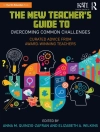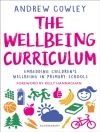Using Goals to Amplify Student Learning
Step Into Student Goal Setting provides an action plan for answering the question: What does this student know and how do I build from it?
Research-driven and practical, this guide shows teachers how to integrate formative assessment, student metacognition, and motivational strategies to make goal setting an integral instructional strategy. Author Chase Nordengren weaves research and case studies with practical strategies to demonstrate how goal setting, with clear learning intentions and plenty of scaffolded support by teachers, can lead to high learning growth and student agency.
Readers will find:
- Actionable strategies for incorporating goal setting in instructional practice
- Tips for using goals as motivational strategies to drive learning growth
- Guidance on how to coach students through setting their own goals – recalibrating and celebrating along the way
- Vignettes and examples to demonstrate what goal setting looks like in the classroom
By demonstrating how to set, monitor, and evaluate goals, this guide equips teachers with the tools they need to help students take ownership of their learning journeys.
Inhoudsopgave
Chapter 1: What Good Goals Look Like
Chapter 2: Start Early and Keep It Up: Setting Goals for All Students
Chapter 3: Build the Habit
Chapter 4: Showcase Success Through Balanced Assessment
Chapter 5: Create Personal Relevance
Chapter 6: Use Student Choice to Support Autonomy
Conclusion: A Vision for the Goal Setting Classroom
Over de auteur
Chase Nordengren, Ph D is a Sr. Research Scientist at NWEA, where he supports the Professional Learning team with primary and secondary research that drives content innovation and instructional improvement. His work includes needs assessment and program evaluation services for partners, supporting school improvement processes, and thought leadership on formative assessment and student goal setting practices. He received a Ph D in Leadership, Policy, and Organizations in K-12 Systems from the University of Washington as a US Department of Education Institute of Educational Sciences (IES) pre-doctoral fellow.












